|
If you've ever wondered if you should get yourself a writing mentor, then say hello to Jane Messer. Writer, mentor, and former course director of the post- graduate creative writing programme at Macquarie University, Jane has stopped by to answer all your mentoring questions! Hi Jane, Could you tell us a little bit about yourself? I’ve been writing about my family background for my book Raven Mother which is a part-memoir, part-biography of my father and his mother, and it’s become really clear to me how eclectic my parents were for the times. My father moved from science grant to grant in different countries. I grew up moving around, and hearing my parents’ life stories, listening in when their friends come to the house and regaled them with their adventures — and being read to every night. I had dyslexia and synesthesia, and was slow to learn to read. I think that all combined to me wanting to do my own thing. That pretty much sums up my most significant influences. How and why did you get into mentoring? I came to it through teaching creative writing for many years, first at Johns Hopkins University, then UTS, and then for 16 years at Macquarie University where I was the Course Director of the postgraduate Creative Writing programme. Before teaching I’d been working in the community sector and with independent publishers doing marketing and event management work, and sort of slid into teaching at a time when there were more opportunities, after publishing my first novel Night by Night.
Mentoring, working one-on-one with a writer, working closely with their text, giving feedback about characters, the structure, the language, everything associated with the creative text itself was a favourite part of my university teaching. So it was the obvious thing for me to continue doing after leaving academia. What do you enjoy about it and why? It’s very rewarding working with writers to support them to develop a piece of work, learn new techniques, solve creative problems, and so on. I love the close reading part of mentoring, of working with the creative text, and thinking about how the author can make it the best it can be. I enjoy the listening, watching out for what the writer is needing—often the writer doesn’t know it themself. It’s very rewarding seeing a writer become more skilful, seeing their work simply get “better”.
I can get very fond of a particular manuscript too, and really want it finished and published and out in the world! It’s fun to be excited about another writer’s work and to share that excitement with the author in a practical way. What’s the hardest part about being a mentor? I always remind myself that for the writer, sharing your work with another person, an expert so-to-speak, can be a terrifying experience. I remind myself how very, very important this experience is for that writer, and that it needs to be a positive one. I’ve also worked with writers who’re coming-out in their writing about their sexuality, or past trauma, or in the case of an Indian writer, coming out as an atheist. Respecting the trust the person has placed in me isn’t ‘hard’, but it’s not something I take for granted. Does it help your own creative work? I’m sure it does. Not in a specific way that I can point to and say, I wrote this because of my mentoring. But yes, my writing has been helped immeasurably by the many years of thinking and working with writing ‘problems’ as a mentor, reader, editor, teacher. I’ve been very lucky in my work. There’s a creative symbiosis there for sure.
Why might it be important for aspiring authors to be mentored? What about published authors? Well, there’s quite a few reasons. Firstly, you can learn a great deal with a good mentor, about technique and craft, and ideally you take those new skills with you through to your other writing projects. Those delicious ‘aha’ learning moments. You’re working on a specific piece of writing or series of works, but you’re also learning as a writer in more general ways. A writing mentor will help identify problems in the work, or talk with you about issues you’ve raised and you can canvas ideas, solutions, basically a mentor is someone to have deep conversations about the work with. I’m working with a published author currently, but she’s working in a totally new genre. The difference for her is that when we’re talking about the work, or we’re going through my comments on the page, she understands the issues more quickly and is more confident in her rewriting and revisions. Deadlines: a mentor will hold you to them. It’s great to have a deadline that isn’t one you just made up for yourself. It gets people going with their work. They write more often, they write more words, and revise more rigorously.
Once your work is at a potentially publishable stage, a mentor can help direct you to appropriate publishers, agents, journals, competitions and so on. Agents and publishers are expecting very finished work from new and established authors. The industry economic model has changed and there’s not the money or time for a publisher’s editor to work with a writer to rewrite the ‘promising’ text. That’s why the mentoring sector has grown so much in the past few years; writers need to present much more developed work than they did, say, twenty years ago. Getting a mentor costs money, with no guarantee of being published or earning it back, which can be a block for some writers. Can you comment on that? It’s true, there are no guarantees of publication. I’ve worked with some incredible emerging writers and manuscripts, but they don’t always get published.
How would you recommend someone goes about choosing a mentor? That’s a good question, because how can you be sure? It’s important to choose wisely, and that goes both ways – most mentors will want to see an example of your work beforehand so they can judge if they’re the right ‘fit’ for your work. I was recently offered a military/espionage history novel and said no, because I know nothing about military history and there’s others that do. Look at the mentor’s testimonials, and how long they’ve been teaching and mentoring. Are they familiar with the genre that you’re writing in? So, if they’re focused on scripts, and you’re a short story writer it’s maybe not the best fit. Ideally, you can have a first conversation at no cost, as it’s important to feel you will get on at a personal level. If you can, ask other writers who they’ve worked with, and why it was beneficial. And get into specifics of how the mentor worked: find out if the mentor reads the text in progress closely, or if they’re more oriented to talking about writing process in general. What are your expectations? If you’re just starting out, a mentor isn’t the right approach. You should start with just writing, doing some short courses, maybe a university programme, or have some substantial writing already accomplished. What’s the best way for someone to approach working with the mentor – how does a writer get what they need out of it? What an excellent question. Sometimes, of course, you’re not sure yourself what it is you exactly want. Giving the mentor information about your writing experience and background is important; any publications you’ve had, writing courses you’ve done, and so on. Explain what it is that you’re working on now, and what you hope to achieve: for instance, maybe you want to finish the manuscript and learn new techniques.
Alternatively, you might be wanting to start a new work, and you’re not exactly sure of its form. Or you might struggle with a regular writing practice, in which case talk about that and devise a schedule together that helps with that. The important thing is to begin by saying what you believe you need and want, and be open to suggestion. How can the mentor and mentee best work together so it’s a positive experience for them both? Good communication, naturally and mutual respect, it always works. Send well-proofed copy. Don’t be afraid of your mentor, but don’t pester with thrice-weekly emails. Ask questions, tell them what you want them to know, or ask for what you need. Your mentor will try to read your mind, but it’s not a foolproof method. What advice do you have for aspiring authors? Writing takes time, it is an art that can be practiced, and must be practised. It’s also very time-consuming and there just isn’t any way around that, so you need to find a way to enjoy yourself while working hard for many years.
More about Jane Messer: Jane Messer has mentored many writers and student writers over the past thirty years in her work as a creative writing teacher, mentor and editor. She has published novels, anthologies of world literature and new Australian writing; written and produced two radio dramas; and published experimental and realist short stories. As well as being passionate about her own writing, Jane loves working with writers to help them hone their craft, explore new techniques, become confident about process, and to write the best possible work. You can find Jane at her website www.janemesser.com, on Facebook, Linkedin, or listen to Jane being interviewed here. This article was originally published in the Winter 2021 issue of Women's Ink!
0 Comments
'A library is about the surprise, the serendipity of what you might come across, the shared space...' - Susan Orlean I heard a fabulous interview with Susan Orlean on ABC Conversations programme recently about the 1986 fire in Los Angeles Central Library which destroyed 400,000 books and damaged another 700,000 – more than half of the 2 million books the library held. Who set the fire is an enduring mystery and the subject of her new book, The Library Book. In the interview, Susan discusses the enchantment of a library. ‘It’s not the same as simply going and buying a book you want,’ she says. ‘A library is about the surprise, the serendipity of what you might come across, the shared space, the fact that this is something that belongs to a whole community ... you go to look for one book and you notice the book next to it, the sense that you are browsing through this great communal brain... I had forgotten how delicious that really is.’ (You can hear more of Susan on the episode here). ‘In the library you can make a million errors of choice…’ - Ursula Dubosarsky The freedom to make mistakes That serendipity of a library comes with a freedom of taking chances, of trying something new, picking out something on a whim, the possibility of what might be discovered - or disliked. ‘Don’t overthink it, just explore, grab!’ says Australian Children’s Laureate Ursula Dubosarsky. She describes the library as a place to make a million errors of choice. 'I’m completely not against people owning books, obviously I’m a writer, please own as many books as possible!' she says. 'But I think it’s more important to tell people to join a library than go and buy a book.’ But what about the authors? Australia has 1600 public library outlets, lending out excess of 166 million items a year, and the range is far beyond what’s in a physical book shop. If you’re wondering, yes, authors do receive money when you borrow a book from the library. The Australian Government has a lending rights scheme which provides payments to authors in return for the free access people receive to their work through schools and libraries. Long live books! Plus, the library can give a book greater longevity than the bookshop, sustaining them in the circulation long after they are out of print with the publisher. And every author wants their books to be out in the world, being read, being shared, being enjoyed. So, love your bookshops, and fill your home with all the books you want, but don’t forget the magic of the library and the unexpected delights that are waiting there for you to discover. My Podcast Recommendation: ABC Conversations Podcast Episode Thursday 4 June ‘When the Library Burned’ with Susan Orlean. |
Read more...
All
By Month |
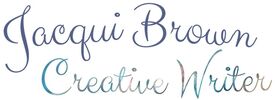
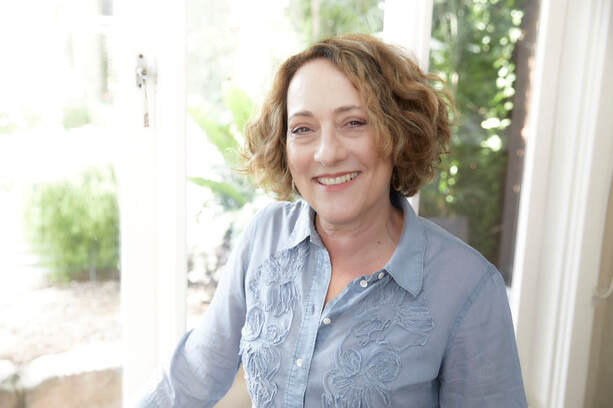
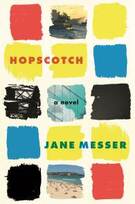
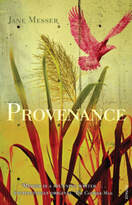
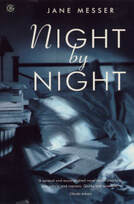
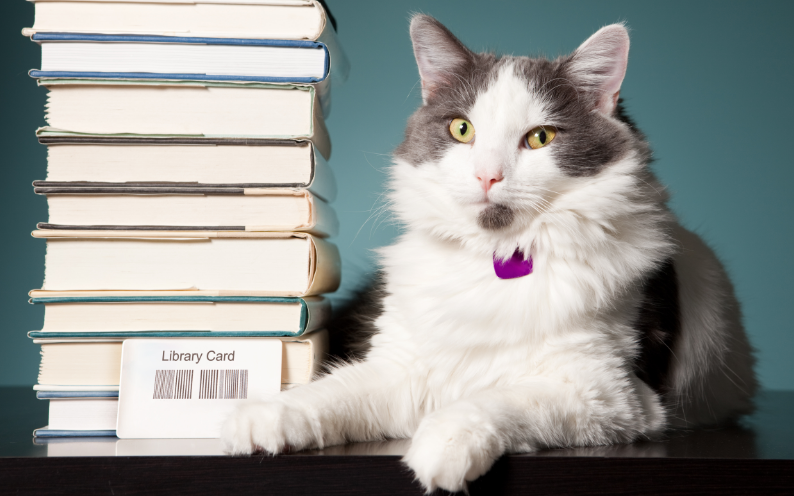
 RSS Feed
RSS Feed

